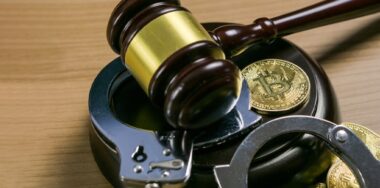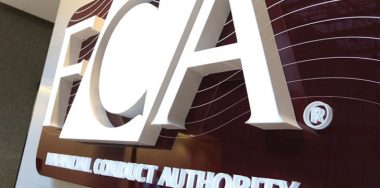| Getting your Trinity Audio player ready... |
The Bank of England (BoE) is exploring the issuance of a digital pound, the bank’s deputy governor John Cunliffe said in a speech Monday. He also warned of the systemic risks posed by the lack of regulation over the industry’s foundational companies.
The remarks were delivered at the Warwick Business School’s Gilmore Centre Policy Forum Conference on DeFi and Digital Currencies. Cunliffe was slated to appear at the conference to talk about the work that the BoE is doing with the Financial Conduct Authority (FCA) on stablecoin regulation and a potential United Kingdom central bank digital currency (CBDC). However, the agenda had been diverted by the ongoing collapse of FTX, the full consequences of which are still emerging, Cunliffe told the conference at the start of his remarks.
“Untangling exactly what happened at FTX will no doubt take a great deal of time, effort, and investigation by the relevant authorities,” he said. “For anyone interested in the scale of the challenge, I can only recommend a quick read of last week’s bankruptcy filing. But while we will not know in full how it happened for some time, there do appear to be some general themes that are very familiar to those who regulate and supervise conventional financial firms and financial instruments.”
According to Cunliffe, the first of these themes is how financial institutions should be organized—their corporate structure, governance, internal controls, and record keeping. These factors are strictly regulated in traditional financial institutions and reflect the risks that financial services pose to users and the system generally. Cunliffe sees no difference in digital asset companies:
“Technology in and of itself does not change the need for transparency in corporate structures, governance, audit and systems, and controls – for example, to protect customers’ funds.”
Cunliffe repeatedly referred to the protection of customer funds, no doubt keeping in mind the billions of dollars’ worth of FTX user assets which now seem all but lost.
Similarly, regulations exist that place controls on the connections between a financial firm and its affiliates—again, Cunliffe emphasized the need for transparency.
On unbacked digital assets, he cautioned that these are highly volatile and subject to runs, as seen in recent months. He highlighted the practice of digital asset companies accepting their own unbacked digital assets as collateral for loans and margin payments—as seems to have taken place with FTX and FTT, as well as other companies—as a unique source of extreme risk in the industry.
The topic of industry-wide risk also featured heavily in Cunliffe’s remarks. He said that the events of the last 12 months have demonstrated that the digital asset ecosystem is not stable. This is due in part because of the price volatility it’s so known for, but Cunliffe says it’s also in part because the institutions upon which the industry relies “exist in largely unregulated space and are very prone to the risks that regulation in the conventional financial sector is designed to avoid.”
Cunliffe also honed in on a relatively esoteric debate, at least as far as the mainstream is usually concerned: whether code is or is not law, and pointed to the existence of “some tentative and limited evidence that the failure of FTX has stimulated some transfer of activity to decentralized platforms.”
“Some, of course, would argue that the answer is not proper regulation of the risks in centralized crypto platforms, like FTX, but rather the development of decentralized finance in which functions like lending, clearing, etc. take place through software protocols built on the permission-less blockchain.”
“From the standpoint of a financial stability authority and a financial regulator, I have yet to be convinced that the risks inherent in finance can be effectively managed this way. That skepticism is greater if the activity in question is the trading, lending, etc., of super volatile assets without intrinsic value,” he added.
More importantly, he says, it’s not clear if so-called ‘decentralized‘ platforms are truly decentralized, pointing out that behind so-called decentralized protocols are firms and stakeholders who derive revenue from their operation.
In conclusion, he said that digital assets should continue to be brought within the scope of regulators for three reasons.
The first is the apparent need to protect consumers and investors. Cunliffe said that investors should be able to invest in digital assets with the same protections they would get in conventional finance, saying that “we should not push the majority who do not want those risks into that world because there is no regulated alternative.”
Secondly, he cites the need to protect financial stability and says that while the digital asset world might not yet be large or interconnected enough to threaten the stability of the mainstream financial system, links are developing rapidly.
Thirdly is a practical one: Cunliffe says that forecasting the direction and pace of technological change “is an even more uncertain game than economic forecasting.” While such a change will always pose risks, the deputy governor says it brings the potential for substantial improvement in the efficiency of financial market infrastructure and the reduction of risk by enabling instant settlement. As a result, innovation should be fostered—which can only be done within a framework that manages risks to existing standards.
Watch: The BSV Global Blockchain Convention panel, Law & Order: Regulatory Compliance for Blockchain & Digital Assets
New to blockchain? Check out CoinGeek’s Blockchain for Beginners section, the ultimate resource guide to learn more about blockchain technology.









